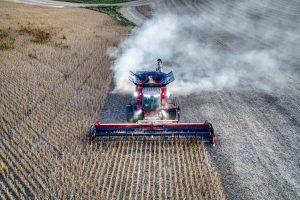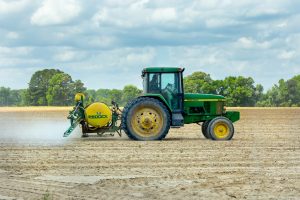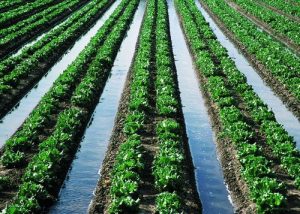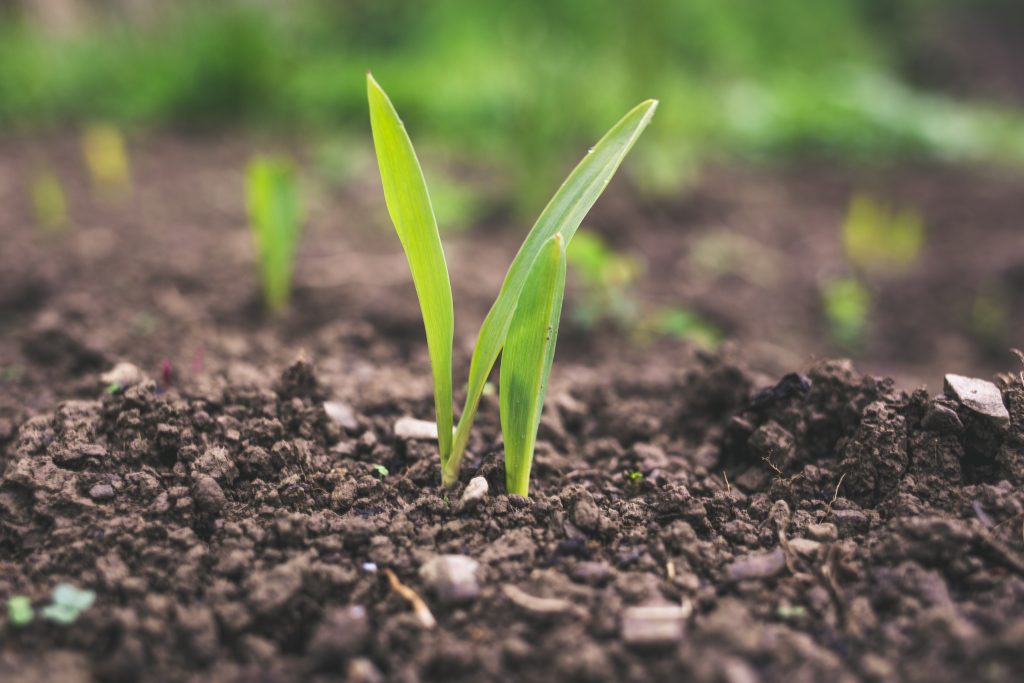What is commercial farming?
Commercial farming or agriculture is the production of crops and livestock, with the use of modern technology. It is a type of agribusiness where farmers raise crops and livestock to make money by selling them in the market.
It is also a large-scale farming geared toward production of crops and livestock for commercial purposes with widespread distribution to wholesalers or retail outlets. In commercial farming, the aim of the farmer is to make profit.
To raise commercial farming, a huge amount of capital investment is necessary. Along with that, it needs large scale farms, modern technologies, innovative machinery, good irrigation methods, chemical fertilizers etc. to produce a high yield. Commercial farming has the main feature consisting of modern inputs for higher productivity like good fertilizers, pesticides, weed killers and many more.
Commercial farming crops are also in high demand because they are exported to other countries. It also used as raw material in industries to make food products. Commercial agriculture marketing also varies from region to region.
The practice, also known as agribusiness, is increasingly being taken up and practiced as more and more people partake in it as a lucrative business venture. Due to this, a lot is invested in terms of capital, manpower, and land, making commercial farming the main driver and influencer of the global agriculture industry.
But then again, commercial farming is worrying to some extent despite its positive results. For instance, lots of fertilizers, insecticides, weed killers and pesticides are used during farming. Furthermore, it utilizes huge parcels of land and also uses a lot of water.

Read also: subsistence farming
Examples of commercial farming
Commercial farming is a method where the crops and livestock are raised to sell products in order to make money. Examples include;
- Grain farming
- Dairy farming
- Livestock farming
- Plantation farming
- Fruit farming
- Commercial bee keeping
- Commercial horticulture
- Food processing
Characteristics of commercial farming
- Farming is done for money, i.e. farm products are produced to be sold.
- A lot of expenses is required to start and maintain a commercial farm. It is capital intensive
- It is a large scale venture. One of the features of commercial agriculture is that it is a business that is undertaken on a large scale.
- This type of agriculture is highly mechanized.
- It uses hired labor.
- It involves the use of chemicals.
- Large area of land is required.
Read also: Breeds of cattle
Advantages of commercial farming
Commercial agriculture has so many advantages which includes the following;
1. It increases farm yield
An advantage of commercial farming or agriculture owing to the fact that a large area of land is cultivated, couple with the use of fertilizers and chemicals, these increase yield of crops and animals. By using machines to carry out various farming techniques, it reduces the time to cultivate the land and add extra acreage to production. With agricultural equipment, it is relatively easy to carry out processes like mechanizes operations, controls pests, and diseases. With increased production, it adds value to the national food stock.
Read also: How to control weed in lawns
2. Provision of cheap farm products
Due to the fact that there is mass production of livestock and crops, the prices of harvest products are usually low and very affordable. With increased production, the prices of agricultural goods are lowered to make them accessible to everyone. It helps to meet the demand and supply; instead, goods are stocked for an emergency.
3. Source of raw material
Commercial farming acts as a source of raw material on a large scale. Fruit farming, in this regard, serves other food industries. For example, fruits are supplied to enterprises for the production of juice, whereas cocoa and coffee are yielded to keep up with the demand and supply of the confectionery industry.
4. Gives agriculture to non-agricultural countries
The food goods produced from farming are then subjected to trade. They are exported to other countries, and this earns business. Non-agricultural countries are the target markets for agribusiness.
5. Employment creation
Commercial farming is a source of jobs for persons living within the area. The workers will earn some money, enabling them to provide food for their families. As such, commercial farming stimulates the growth of the local economy.
6. Cost of production is reduced in the long run
Since farmers employ more efficient methods of production, like the use of harvesters, ploughs, harrowers, and planters, the operations of the commercial farmer become cheaper in the long run. They (farmers) will not have to spend so much on production as time goes on. This will lead to less expenses and more income.
7. Specialization of labor
Commercial agriculture does lead to specialization of labor because all operation are mechanized.
8. Increase production and enhances food security
Commercial farming mechanizes operations, control disease and pest enabling the farms to produce more. As a result, commercial farmers increase production, helping increase the national stock of food products.
Disadvantages of commercial farming
As commercial farming has got some advantages, it also carries some disadvantages. Let’s look at some of them.
Read also: Hydroponic farming
1. Unavailability of lands
With commercial farming getting on the rise, farmers are pursuing the profession, and every available land is turning to a farmland. Now there are no more lands available for cultivation, and farmers are restricted from using worn-out lands that, in turn, can impose a threat to the production rate.
2. Foods are not so safe for consumption
Commercial agriculture is the real culprit to promote fertilizers, herbicides, pesticides, insecticides and other chemicals to protect the crops against insect attacks. But these chemicals, in turn, are a vivid threat to humankind.
3. Inadequate supply of improved varieties
Inadequate supply of improved varieties of crops and animal is a major disadvantage of commercial agriculture, this simply to say, there is inadequate supply of improved varieties of crops and some breeds of animals.
4. High capital investment
the cost of starting up a commercial farm can be really expensive. the cost of getting or renting a very big land space, maintenance cost, cost of getting mechanized equipment and so on can be a very huge disadvantage.
5. Inadequate technical-know-how
Inadequate technical know-how in the sense that there’s no much knowledge on the proper maintenance and usage of farm machinery, and this makes commercial agriculture very difficult to handle.
6. Inadequate processing facilities
Processing facilities for agricultural products from farms are grossly inadequate. its either they are inadequate or very expensive to purchase.
7. Inadequate storage facilities
When crops like fruits and vegetables are cultivated on the farmlands, they are easily perishable. If not sold at the right times, these crops can turn into dung within days. Moreover, a large amount is required to carry out preservation techniques, and most commercial farms don’t have the right storage facilities for other types of crops. they just produce and sell and when everything doesn’t make it to the market, they’re left to perish.
8. Deforestation
To increase the acreage of production land, commercial farming is destroying the natural rainforests. As the area under the coverage of rainforest is best to carry out cultivation. When the forest is removed to cultivate crops, there appears a negative impact of deforestation on the environment.
Read also: Vertical farming
The bottom line
Commercial farming unlike subsistence farming, in order to achieve the economy of scale, therefore, commercial farming needs to be very efficient and practiced on a large scale as the goal of the farmer is to maximize the profit margin. Contemporary commercial farming hence solely focuses on the production of crops and farm animals for sale, using the most advanced, efficient, and recent technologies.
PLEASE SHARE


